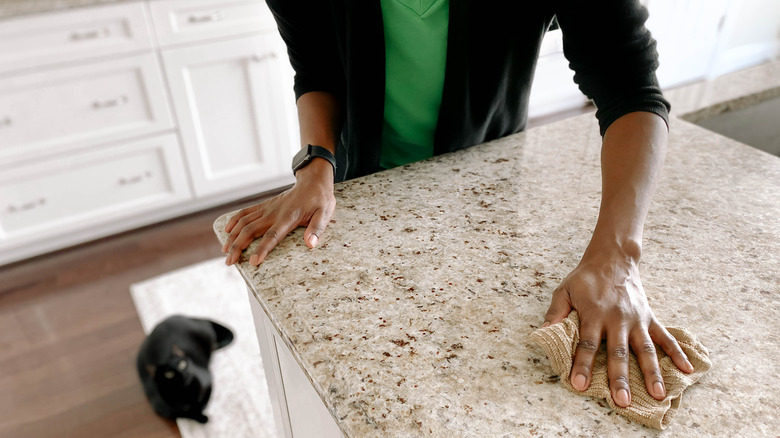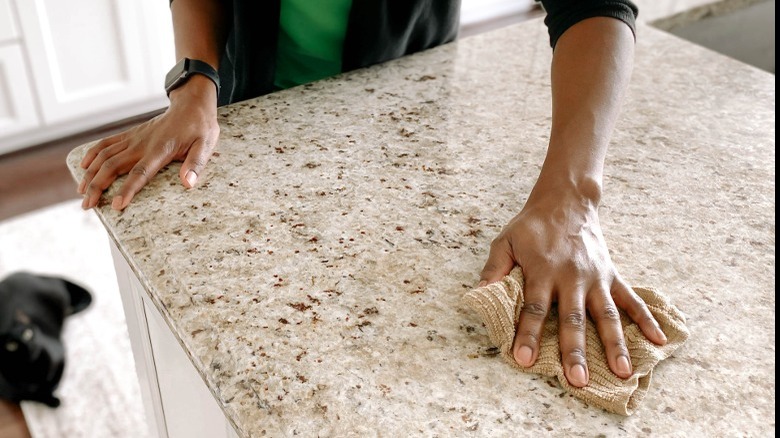You Can Effortlessly Remove Glue From Granite Countertops. Here's How To Do It
Durability may be a key selling point for granite countertops, but common spills like glue can often create tricky cleaning situations. Though tough against scratches and impacts, poorly sealed granite stains easily. In some cases, you might try to remove liquid, gunk, and grime only to find your cleaning products can damage granite just as readily. As much as you need to remove glue smears, you can't attack them with acidic vinegar and other convenient solutions that might etch your granite's surface and leave an even more challenging repair job.
When you need to remove superglues, uncured epoxies, and other strong adhesives, solvents like acetone can work without harming the stone. To ensure it won't damage your countertop, test the acetone — or even acetone-based nail polish remover — on an inconspicuous area. Leave it for several minutes to ensure it doesn't stain the surface. If your countertop can handle it, soak a cloth or cotton ball in acetone, and gently rub it into the glue. Let it soften the glue, and wipe it away or scrape with a blade.
More solutions to remove glue from granite
Before using a solvent, try scraping the glue. Use a putty knife, butter knife, spatula, or razor blade to lift the cured adhesive. According to Gorilla Glue, mechanical action like this is the best way to remove its polyurethane-based glue. Pressing the entire edge of a razor and carefully forcing it under the glue will remove most, if not all, of the adhesive and leave no damage in its wake. If you aren't comfortable using metal, an old credit card or a plastic scraper (like this $2 scraper from Ace Hardware) can do the trick. Once you remove most of the glue, you can quickly release any lingering residue with a solvent.
Like acetone, lacquer thinner can break down superglue and other adhesives. Because it's potentially hazardous to your counter and your health if inhaled, spot test thinner to check for damage and follow the instructions for safe use. Some solvents are harsh on granite, so you should check whether your countertop needs resealing after using them.
Keep in mind that light-duty glues and adhesives often don't need such aggressive solutions. Rubbing alcohol can remove many types of sticky gunk, including uncured epoxy. Cooking oils like canola or vegetable oil may also work. But since oil is one of many substances that damage granite countertops, spot test it and clean it quickly after removing the glue residue to prevent stains. With the glue removed, wash your countertop with soap and water. Reseal it if necessary to refresh the look of your granite and make future issues less likely to happen.

